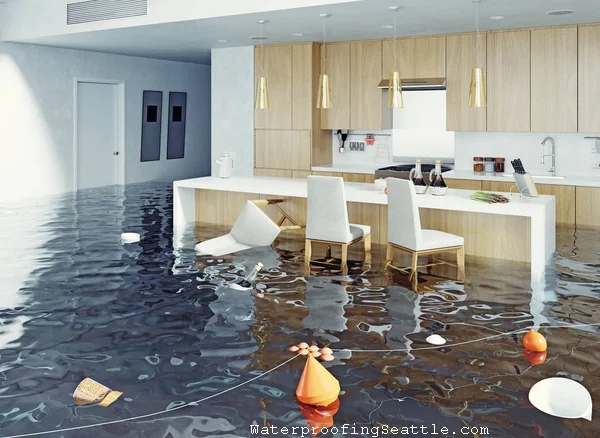
Did you know that the aging infrastructure in King County Washington is contributing to water damage in homes and businesses? It’s a serious problem that can lead to costly repairs, health hazards, and even displacement. But don’t worry, there are solutions. In this blog post, we’ll explore the pipelines and pitfalls of aging infrastructure and discuss how you can protect your property from water damage.
Are you tired of dealing with water leaks and flooding in your home or business? It’s time to take action. The first step is understanding how aging infrastructure contributes to water damage. Over time, pipes and other water distribution systems can deteriorate, leading to cracks and leaks. This can result in wasted water, higher utility bills, and property damage. Don’t let these problems continue unchecked.
Imagine walking into your home after a long day at work, only to find it flooded due to a burst pipe. The stress and financial burden of dealing with water damage can be overwhelming. But it doesn’t have to be this way. By investing in regular maintenance and upgrades for your plumbing system, you can prevent these disasters from happening.
Are you ready to protect your property from future water damage? Start by scheduling an inspection with a professional plumber. They can assess the condition of your pipes and recommend any necessary repairs or replacements. It’s a proactive approach that could save you thousands of dollars in the long run.
With aging infrastructure comes the risk of water contamination. Rusty pipes and outdated systems can introduce harmful substances into your drinking water, putting your health at risk. Don’t wait until it’s too late to address this issue. Invest in a water filtration system to ensure that you and your family are drinking clean, safe water.
Are you concerned about the impact of aging infrastructure on the environment? Old pipelines can contribute to water waste and pollution. By upgrading to more efficient and sustainable plumbing systems, you can do your part to conserve resources and protect our planet.
Protecting Your Property from Water Damage
Now that you understand the risks associated with aging infrastructure, it’s time to take action. Here are five steps you can take to protect your property from water damage:
1. Maintain regular inspections: Schedule annual inspections with a professional plumber to identify any potential issues before they become major problems.
2. Upgrade your plumbing system: Consider replacing outdated pipes and fixtures with more durable and water-efficient alternatives.
3. Install a sump pump: A sump pump can help prevent basement flooding by removing excess water from your home.
4. Invest in proper drainage: Ensure that your property has adequate drainage systems in place to redirect water away from your home or business.
5. Educate yourself about water damage prevention: Learn about common causes of water damage and how to spot early signs of trouble. Knowledge is power when it comes to protecting your property.
The Importance of Water Filtration Systems
Did you know that not all tap water is created equal? Even if it meets regulatory standards, it can still contain impurities and contaminants that affect taste and quality. That’s why investing in a water filtration system is so important. Here are five reasons why you should consider installing one in your home:
1. Health benefits: A high-quality water filtration system can remove harmful substances such as lead, chlorine, and bacteria, ensuring that you’re drinking clean, safe water.
2. Cost savings: Bottled water can be expensive, especially if you consume large quantities. By filtering your tap water, you can save money and reduce plastic waste.
3. Improved taste: Let’s face it, tap water doesn’t always taste great. By filtering out impurities, you can enjoy better-tasting water without the need for additives like bottled flavorings.
4. Environmental impact: By using a water filtration system, you can reduce your ecological footprint by eliminating the need for single-use plastic bottles.
5. Convenience: With a water filtration system, you’ll have clean water on demand, whenever and wherever you need it. No more lugging heavy bottles of water from the store.
Sustainable Solutions for a Greener Future
In addition to protecting your property and ensuring clean drinking water, upgrading your plumbing system also offers an opportunity to embrace sustainable solutions for a greener future. Here are five eco-friendly options to consider:
1. Low-flow fixtures: Install low-flow toilets, showerheads, and faucets to conserve water without sacrificing performance.
2. Rainwater harvesting: Collect rainwater in barrels or tanks for use in gardening or flushing toilets, reducing your reliance on municipal water.
3. Greywater recycling: Treat wastewater from sinks, showers, and laundry for non-potable uses like irrigation or toilet flushing.
4. Solar-powered water heating: Use renewable energy to heat your water with solar panels, reducing your carbon footprint and energy costs.
5. Smart irrigation systems: Install smart sprinkler controllers that adjust watering schedules based on weather conditions and plant needs, conserving water year-round.
Pipelines and pitfalls may be inevitable with aging infrastructure, but the impact on your property doesn’t have to be. By taking proactive steps to maintain and upgrade your plumbing system, investing in a water filtration system, and embracing sustainable solutions, you can protect your property from water damage and contribute to a greener, healthier future for King County Washington.
